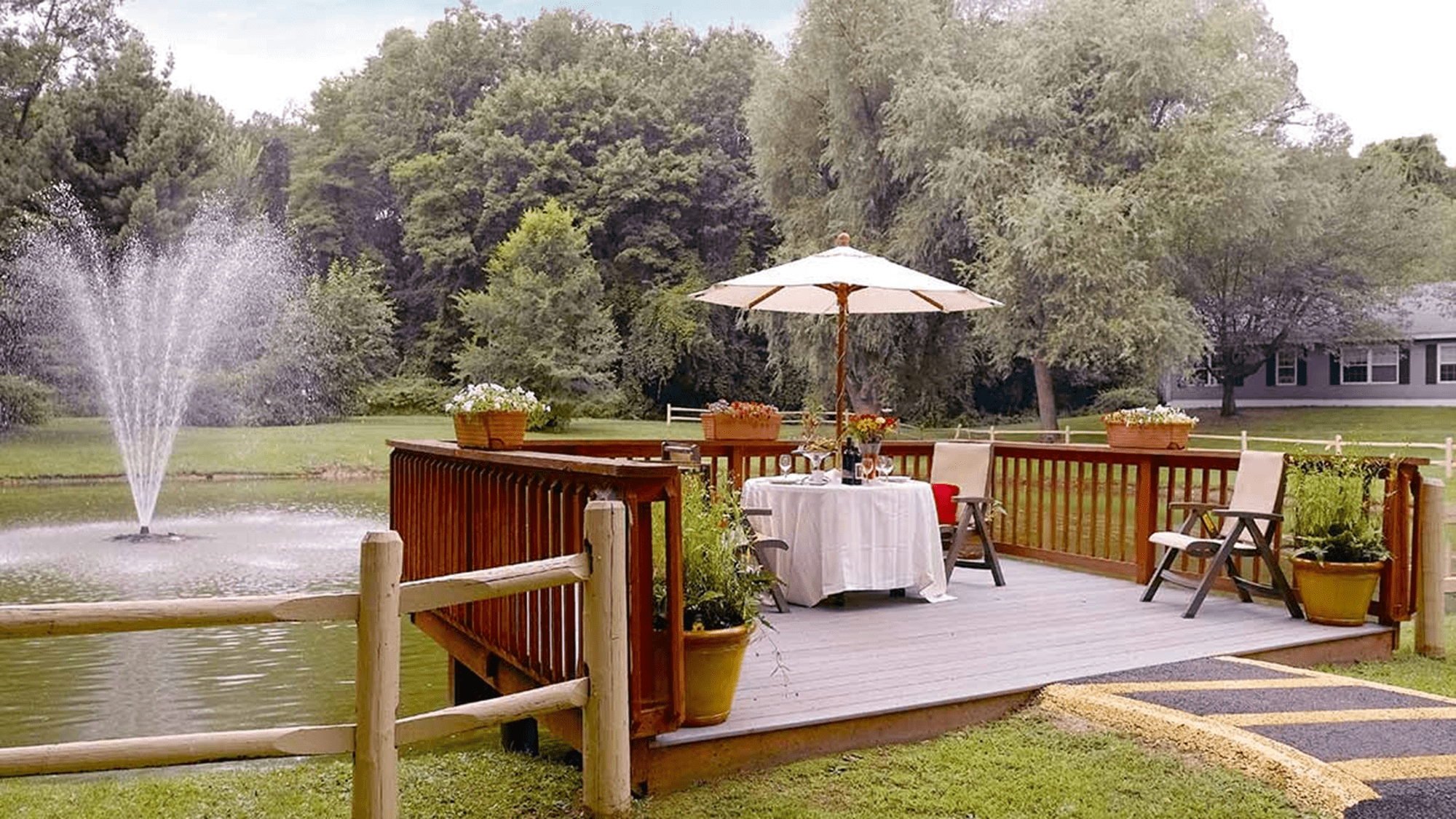Deciding to move a loved one from independent living to assisted living can be challenging for adult children and caregivers. This transition marks a significant change in your loved one’s daily life and overall well-being. However, understanding when it’s the right time to make this move is crucial so they can receive the support they need.
Moving from independent living to assisted living may be necessary if your loved one can no longer live safely or comfortably without assistance. Making this decision early is essential, as it helps make the transition smoother and more positive for everyone involved.
Why People Choose Independent Living
Independent living is housing designed for seniors who are generally self-sufficient and can manage their daily activities without significant assistance. These communities often offer amenities such as housekeeping, dining options, recreational activities, and social events, providing a vibrant and engaging lifestyle for residents.
This style of living is for seniors who:
- Are relatively healthy and active
- Seek a community of peers
- Want to downsize from a larger home
- Desire a maintenance-free lifestyle
The appeal of independent living lies in its ability to offer a blend of independence with the convenience of various services, allowing seniors to enjoy their golden years with minimal worries. However, there may be less focused support on basic needs. For this additional level of support, your loved one may require assisted living.
Recognizing the Need for Assisted Living
Despite the many benefits of independent living, there may come a time when your loved one needs more help than this setting can provide. Here are some signs that it might be time to consider assisted living:
- Declining health: If your loved one is experiencing frequent health issues, chronic illnesses, or significant weight loss, they may benefit from the medical supervision and care available in an assisted living community.
- Difficulty with daily activities: Struggling with activities of daily living (ADLs) such as bathing, dressing, or managing medications is a red flag that they might need extra assistance.
- Increased Isolation: Social withdrawal or a noticeable reduction in their once active social life can lead to depression or even worsen their physical health. Assisted living communities offer structured social opportunities and a sense of belonging.
- Safety concerns: Frequent falls, forgetting to turn off the stove, or forgetting to take medicine can jeopardize their safety. An assisted living environment can provide a safer living space and constant supervision.
- Poor hygiene: Neglecting personal hygiene or living in unsanitary conditions can be an indicator that your loved one is struggling to maintain their independent lifestyle.
- Cognitive decline: Challenges with memory, confusion, or wandering off can signify the need for more structured care found in assisted living.
Being attentive to these signs can help you make a well-informed decision about transitioning to assisted living, helping your loved one receive the support they deserve in a warm and nurturing environment.
Making the Transition to Assisted Living
Any big life change starts with a conversation. Stay open and empathetic. Explain the reasons for the move and how you believe it will benefit their well-being. Highlight specific aspects of the new environment that cater to their needs, such as medical care, social activities, and safety features.
Above all else, involve them in decisions as much as possible and start discussing the possibility long before it becomes a necessity. Pay attention to your loved one’s concerns—as they may have their own about their current living situation! This is a great time to gently introduce the idea of exploring options that could enhance their comfort.
Spend time visiting potential communities together, discussing pros and cons, and gathering their input. Listen to their concerns, acknowledge their feelings, and provide reassurance that their happiness and health are your top priorities. Offer consistent emotional support, checking in regularly to ensure they feel heard and valued.
Remember, this is a significant change for them, and your support can make all the difference in helping them adjust and find comfort in their new home.

Choosing an Assisted Living Community
A home is a home, no matter how you find yourself there. You’re not just getting your loved one support—you’re gently moving them into the next stage of their life. It’s okay to take some time to decide on the right community.
In some cases, the decision is easy—they stay right where they are! Your loved one is already in an independent community they adore, so why don’t they age in place? Some senior living communities can adjust your loved one’s lifestyle to suit their evolving needs. When first looking for a new home, the ability to age in place should definitely be a consideration.
If you’re looking for a brand new assisted living community, ensure you take the time to visit it. Consider the following factors:
- Location: Proximity to family and friends
- Services and amenities: Availability of essential services and recreational activities
- Staff credentials: Qualifications and experience of the caregiving staff
- Cost: Understanding the pricing structure and what is included
- The community spaces: Observe the living conditions and interact with staff and residents
- The atmosphere: Ensure it feels welcoming and well-maintained
Inquire about healthcare services, meal plans, and social activities. Also, ask yourself if your loved one requires specialized support. For example, memory care is a lifestyle specially designed for people with dementia and other kinds of cognitive decline.
Making the Move the Peregrine Way
Transitioning from independent living to assisted living is a significant step, but with the right approach, it can lead to a better quality of life for your loved one. Remember to recognize the signs that they may need more assistance and start the conversation early.
If you’re considering this transition for your loved one, Peregrine Senior Living at Crossgate is here to help. We’re committed to providing your loved ones with a vibrant community where independence and support go hand in hand.
Contact us today to book a tour and see how we can empower your family’s senior experience.













Still open for donations! Taking any donations up until 3/13/26 😊👜 Hello, Everyone!
Our Community is hosting a “ Lucky 🍀 Community Thrift Store “ if you, or anyone you may now has items to donate please feel free to contact our Activity Director, Destiny!
•Blankets
•Home Decor 🖼️
•Womans Clothing 👚
•Mens Clothing 👕
•Unisex Clothing 👕👚
•Handmade Crafts/items ✨
•Books 📕
•Mugs/Cups ☕️
Email at • [email protected]
Thank you in advance 🙂 ... See MoreSee Less
0 CommentsComment on Facebook
Last Months Community Service Project was to raise money for the America Heart Association ❤️ together our Community was able to raise $280, and since it’s National Heart Month in February our Donation doubled to $507!
Congratulations to our Raffle Winner, Nancy!
Thank you to everyone who showed support! 🙂 ... See MoreSee Less
0 CommentsComment on Facebook
Learn and experience insider tips, considerations and real guidance that only experts can provide in person!
Hope to see you there! 🙂 ... See MoreSee Less
0 CommentsComment on Facebook
Meet the ExpertsMar 12, 7:30amPeregrine Senior Living at CrossgateLearn and experience insider tips, considerations and real guidance that only experts can provide in person!
Hope to see you there! 🙂 ... See MoreSee Less
0 CommentsComment on Facebook
Dining at our community is about more than what’s on the plate—it’s about connection, community, and the joy of gathering together.
Our talented culinary team crafts meals that are both delicious and nutritious, offering flavors that comfort and inspire.
From themed dinners to chef demonstrations, each meal becomes an opportunity to savor the moment and celebrate life’s simple pleasures. 🍴
peregrinecrossgate.com/ ... See MoreSee Less
1 CommentsComment on Facebook
🌶️ National Chili Day!
Today our Staff did a contest to see who has the best tasting chili. Oh how Yummy! 😋
Congratulations to our Maitenance Assistant, Owen! 🏆
Thank you to all who came and took a vote! ... See MoreSee Less
5 CommentsComment on Facebook
🪄 🍻 Happy Hour & Magic never went so well together!
Huge shoutout to Magic With Dave for performing a rather impressive show for our Community this past Wednesday! ... See MoreSee Less
0 CommentsComment on Facebook